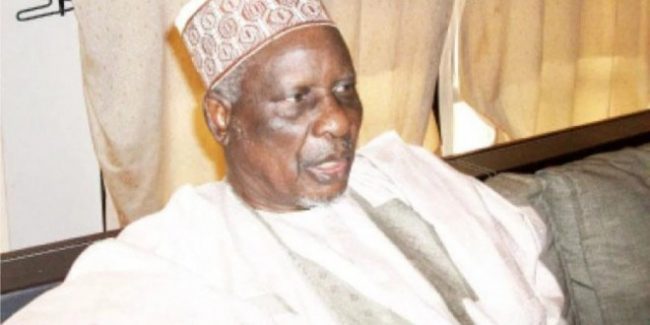News
North would have been under control of South if Nigeria had gained independence in 1956 –Yakassai

Alhaji Tanko Yakasai, one of the most vocal and prominent Northern elders has explained why the north rejected a motion for Nigeria’s Independence raised by Chief Anthony Enaharo in 1956.
He said if the north had gone with the proposal, it would have been under the control of the South as it lacked the necessary human capital to face the challenges of self-governance.
Chief Enahoro, one of Nigeria’s pre-Independence activists and a member of the Action Group (AG), had moved the motion for Nigeria’s independence from the British colonial masters in 1953 which was to see Nigeria become a sovereign state by 1956, but the northern delegates had opposed the motion.
In an essay entitled “Leadership Question and the Issue of Nigeria’s National Unity” to mark his 94th birthday on Thursday, December 31, Yakasai noted that as at 1953, the entire Northern region had only one university graduate, the late Dr R. A. B. Dikko, which was a far cry from the thousands of graduates the Western and Eastern regions had, and as such, there was no way the north could have governed themselves effectively.
In the essay, Yakasai also faulted those who have been criticizing the current local government structure in the country which sees a state like Kano having 44 local government areas while others have far less, irrespective of the population of such states.
“What I found very disturbing is that such utterances are directed against the unity of our country,” Yakasai said in the essay.
Continuing, he said:
“Such narratives resembled that of some political leaders’ way back in 1953 when a member of the defunct Action Group Party introduced a motion in the House of Representatives, asking Britain to grant independence to Nigeria by 1956.
Read also: Yakassai blames Nigeria’s woes on military
“Another Northern member of the House proposed an amendment to the motion by changing 1956 to as soon as practicable.
“This was because as at 1953, the entire Northern Region, which had 75 per cent of Nigeria’s landmass and about 55 per cent of the country’s population, had only one graduate, Dr. R.A.B Dikko.
“At the same time, the South had thousands of graduates from different fields of expertise including law, engineering, medicine, administration, social sciences, etc, with about 90 per cent of the public services manpower in the North made up of expatriates or Nigerians from the southern part of the country.
“Action Group leaders rejected the compromise proposed by the northern legislator in order to enable the north prepare itself for independence.
“This is because if Nigeria was granted independence by 1956, the North would be under the control of the civil servants from the South, a situation that will put the North under perpetual domination of the South, particularly people from the Western Region, which had the preponderance of the public servants at the time.”
Join the conversation
Support Ripples Nigeria, hold up solutions journalism
Balanced, fearless journalism driven by data comes at huge financial costs.
As a media platform, we hold leadership accountable and will not trade the right to press freedom and free speech for a piece of cake.
If you like what we do, and are ready to uphold solutions journalism, kindly donate to the Ripples Nigeria cause.
Your support would help to ensure that citizens and institutions continue to have free access to credible and reliable information for societal development.
























